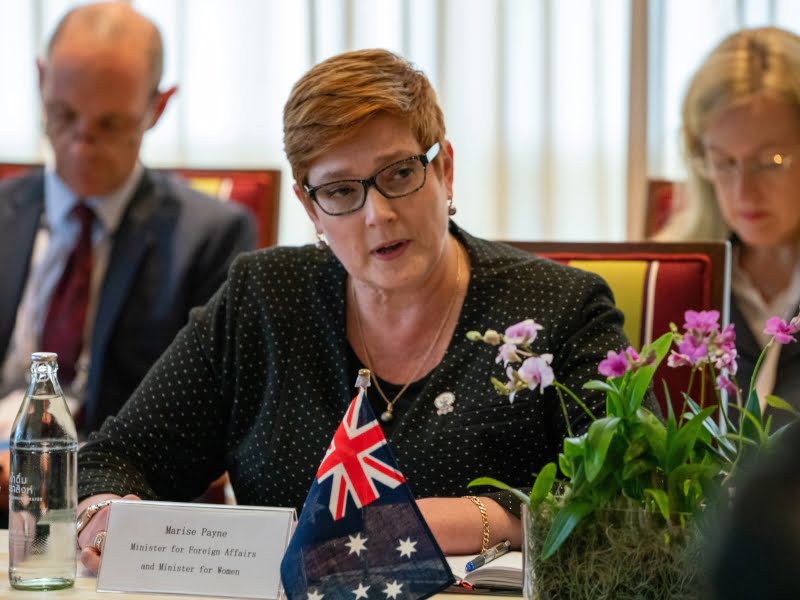Dangerous disinformation and “arbitrary incursions on liberties” are the technology red lines that Australia won’t allow to be crossed, according to Foreign Affairs minister Marise Payne. On Friday she warned against the unchecked influence of Big Tech, which she said should have been addressed “yesterday”.
Speaking at the Australian Strategic Policy Institute’s Sydney Dialogue on Friday, Ms Payne warned about the threat of disinformation to Australia and its Asia Pacific neighbors, particularly in public health areas like vaccines.

Ms Payne said the federal government was still trying to strike the “balance” between reigning in big tech and protecting free speech and open marketplaces, and time was running out to achieve it.
“My suggestion is we should be starting yesterday, which in fact is what we are doing in terms of the sorts of conversations and discussions that are being had,” she said.
The scrutiny follows an attack on large technology companies by the Australian Prime Minister Scott Morrison last week.
“Where there are arbitrary incursions on liberties, where there’s the use of dangerous disinformation, where there’s the theft of intellectual property, or malicious cyber activity and cyber behaviour to undermine stability [then] they are pretty clearly unacceptable,” Ms Payne said at the event jointly sponsored by the government and Facebook parent Meta.
“There are red lines, I guess, that are broadly agreed: technology being used to perpetrate disinformation, social disharmony, or as a propaganda tool. But I think the best antidote to disinformation, frankly, is sunlight.”
Ms Payne said platforms need to both remove dangerous content and promote authoritative sources, something the biggest companies had struggled to do during the pandemic as billions of users spent more time online.
Ms Payne said her department had established a taskforce to “pre-empt” and respond to disinformation and build resilience in neighbouring countries.
“Vaccines have been the best and worst example of this [disinformation] that that I have seen. And, certainly during the last months as vaccines have been the subject of great discussion, I’ve made sure that we’re very focused on that.”
The government was criticised for failing to condemn comments of then-Liberal MP Craig Kelly earlier this year. The rogue backbencher has routinely promoted dangerous COVID-19 misinformation through online platforms. He eventually quit the Liberal party and now sits on the crossbench but has guaranteed supply to the Coalition.
The Foreign Affairs Minister advocated for better governance of the internet in the way “rules of the road” reduce road accidents and remain relatively consistent as technology changes.
Ms Payne said Australia had made it “very clear” where the responsibility for technology governance lies, but a global approach is needed.
“It doesn’t matter where the technology is derived. If we can come together to agree on the sort of rules of the road that we should be adopting in cyberspace, so online, in that way, then the genesis of the technology should not should not be the issue.
“I’m not naive. I understand that is perhaps easier said than done in some ways.”
Meta vice-president of global affairs and communications Nick Clegg said platforms like Facebook do need to be more transparent but it was up to legislatures to establish more ways to do it.
“My own my own view is that in the in the long run, we need something close to a sort of Bretton Woods moment of the internet to create the international institutions to really underpin the principles of openness, transparency, accountability, and privacy, which has made the internet such an extraordinary, extraordinary phenomenon in recent years,” Mr Clegg said.
Do you know more? Contact James Riley via Email.

